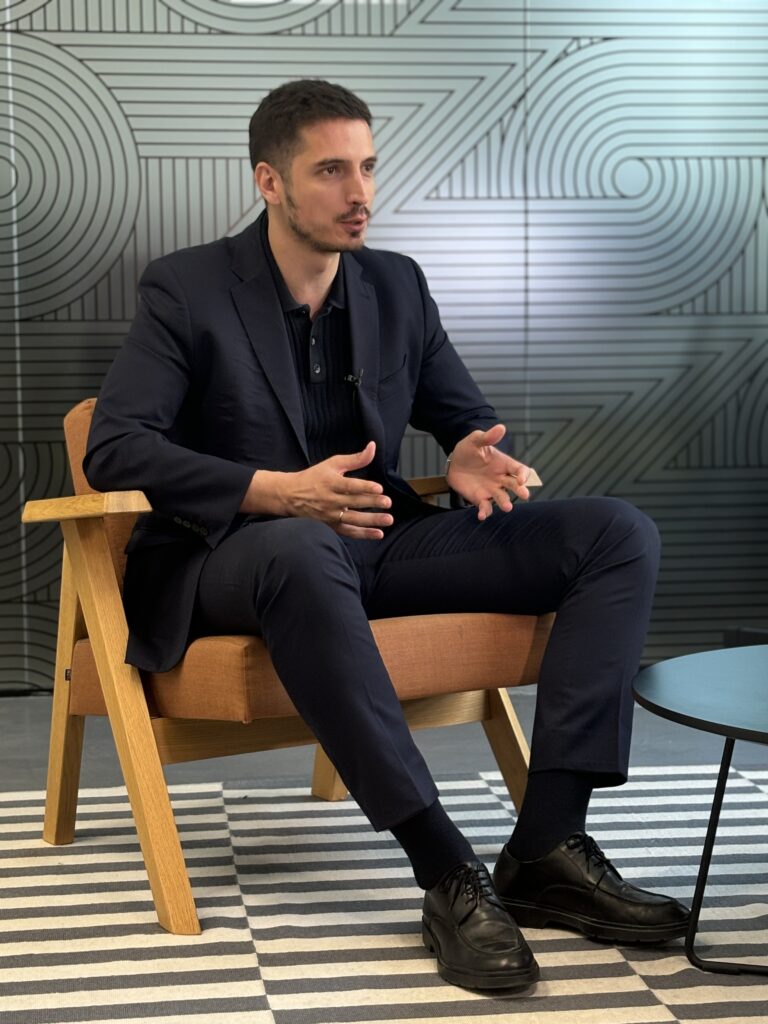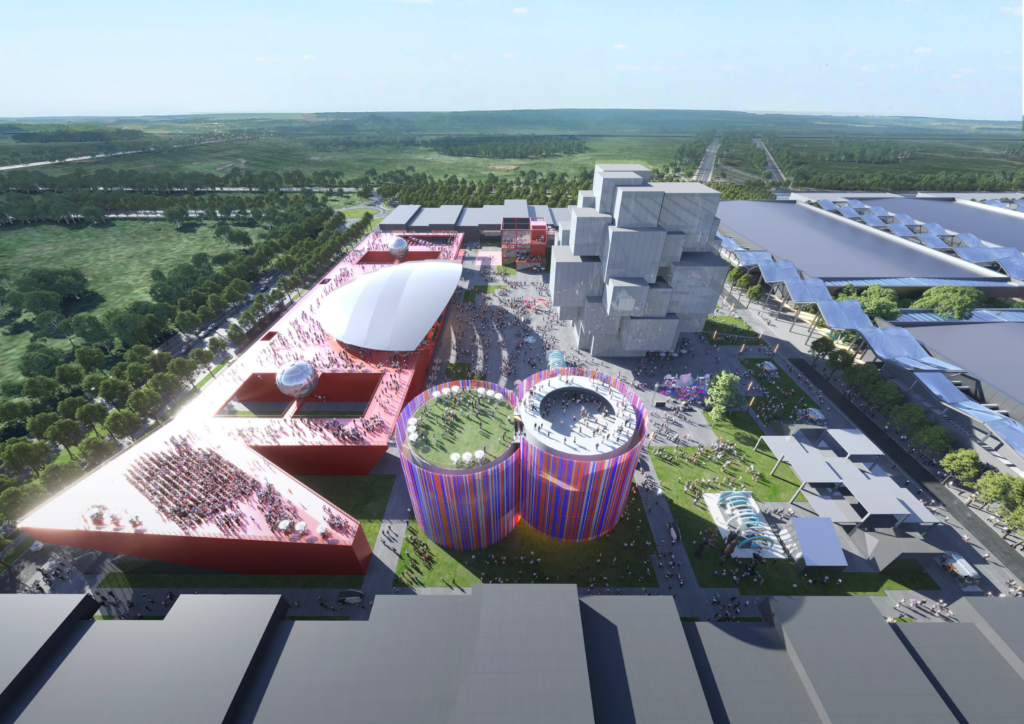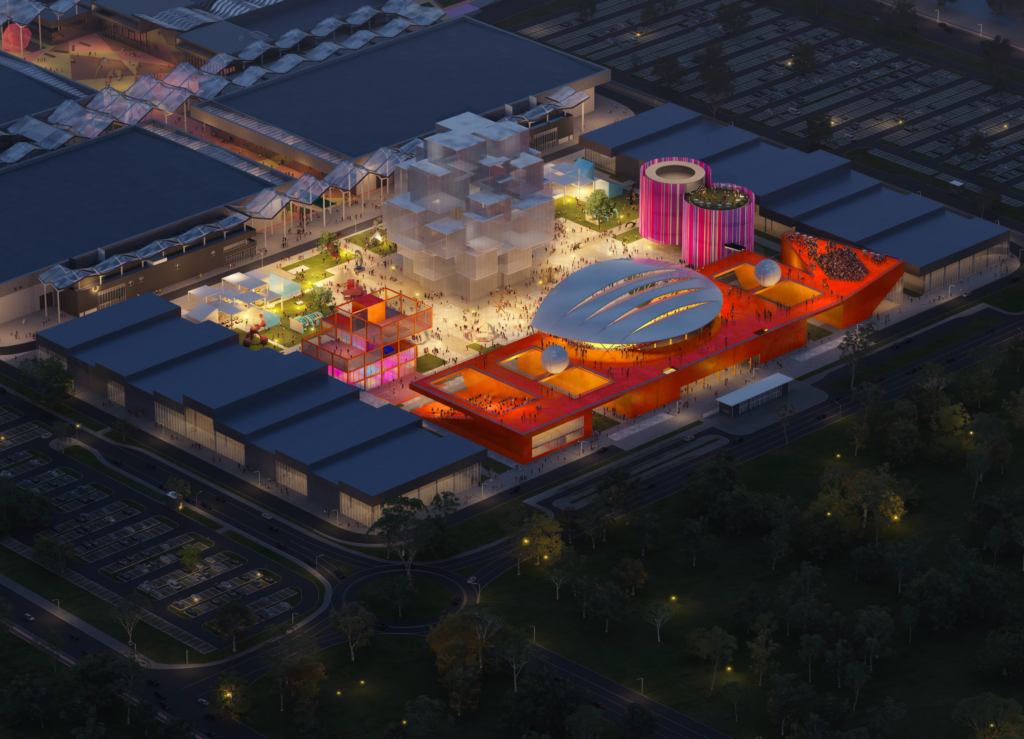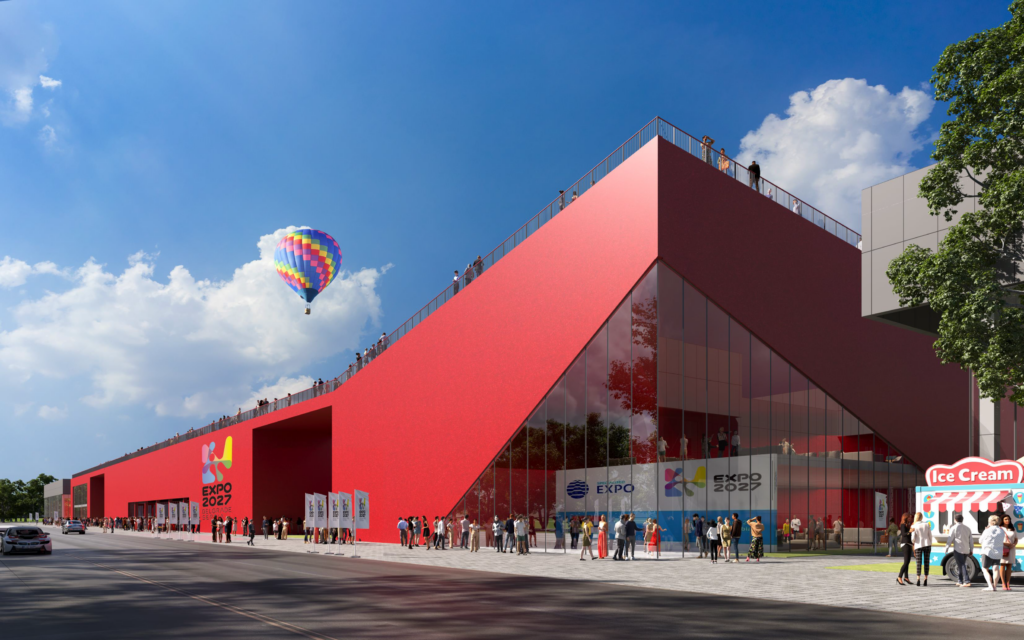Connecting Innovation, Culture, and Diplomacy on a Global Stage

Dušan Borovčanin, CEO of EXPO 2027 Belgrade, shares insights into the vision, challenges, and legacy of Serbia’s first global event of this scale, highlighting its transformative potential for the region and beyond.
What inspired Belgrade to apply for EXPO 2027, and how does this event align with the city’s long-term development goals?
Serbia has 140 years of experience participating in international exhibitions, yet it has never hosted one as well as the rest of the Western Balkans. The candidacy of our capital to host the Specialised Expo is primarily based on the belief that Serbia can organise such a significant event, as well as the potential to make a difference and contribute to shaping Belgrade’s image as a hub of innovation, culture, diplomacy, and economy. Accordingly, it is natural to believe that EXPO 2027 will pave the way for a new direction in the development of Belgrade, Serbia, and the entire region, fostering various forms of cooperation with other countries, attracting new investments, and improving the quality of life for all citizens.
As the Director, what are your key priorities in organising EXPO 2027, and how do you envision its legacy for Serbia and the region?
We have an ambitious plan—to break all records for specialised Expos by attracting over 4 million visitors from more than 120 countries to Serbia during the three-month event. They will enjoy unforgettable experiences and take home lasting memories. A high-quality programme from us as hosts and participating countries will be the key to achieving this.
Expo unites people from diverse nations, fostering innovation, education, and business connections while offering a rich experience for thousands involved in its preparation and delivery. It also brings a sense of pride and redefines our country’s position globally. This event will have long-term effects on the region and international collaboration.
Expos always leave a lasting infrastructural mark, from the Eiffel Tower to the Space Needle. Our Expo will create remarkable structures to attract tourists, improve citizens’ quality of life, and develop new skills and knowledge. After the event, the site will host the Belgrade Fair headquarters, an Expo Museum, and a Centre for Music Skills and Innovation. Belgrade will be among the few cities to prioritise legacy, ensuring its citizens fully utilise the space.
EXPO 2027 will position Serbia as a modern, innovative hub, fostering global connections and long-term development
Could you share insights into the theme of EXPO 2027 and how it reflects global challenges or opportunities?
I must point out that the theme was conceived during a period marked by significant challenges for modern society—ranging from the COVID-19 pandemic and energy crises to supply chain disruptions, various conflicts, and overwhelming uncertainty about what the future holds. For me, the theme “Play for Humanity – Sport and Music for All” profoundly impacts two major areas. Firstly, it focuses on social cohesion, community empowerment, and collaboration. Sport and music are universal elements that unite people, transcending origins and differences. Secondly, it highlights the creative economy and the broader creative industries, providing new sources of growth and fostering a transition from traditional models to a knowledge-based economy. Through this theme, we aim to address global challenges and unlock opportunities by leveraging the unifying power of sport and music to inspire innovation, resilience, and collaboration.
 What infrastructure development projects and urban planning initiatives are underway to prepare for the event? Is there a concern about the future usability of many structures that will be built?
What infrastructure development projects and urban planning initiatives are underway to prepare for the event? Is there a concern about the future usability of many structures that will be built?
Every aspect of this project has been planned with its legacy in mind, setting us apart from competitors and even some past mega-events. We’ve dedicated considerable attention to this, earning commendations from member countries of the Bureau International des Expositions (BIE). EXPO 2027, spanning on approximately 25 hectares, will includes thematic pavilions, an auditorium, a forum, and sports grounds, which will remain a hub of activity after 2027. The central site, hosting temporary pavilions for participating countries, will be transformed into the new Belgrade Fair. Another section will be repurposed into three schools, three kindergartens, a park, and a boulevard. This thoughtful planning ensures the infrastructure serves the event and provides lasting benefits for the city and its residents.
How do you plan to ensure sustainability and environmental friendliness in executing EXPO 2027?
EXPO 2027 Belgrade will be a sustainability model that will raise environmental awareness in Belgrade and Serbia. From urban planning to introducing indigenous plant species requiring no irrigation, the project contributes to environmental protection. The Expo complex will act as a natural filter, processing over 80% of rainwater and channelling it into underground streams supplying Belgrade. Solar panels will meet 50% of electricity needs during the event and 100% post-event for buildings and spaces. Eco-friendly, non-polluting transport systems will also be introduced. Every aspect of sustainability, including economic and social dimensions, has been carefully considered. The spaces will be used purposefully after the Expo ends, ensuring long-term value and impact.
What measures are being taken to involve local businesses, artists, and communities in the event?
We are one of the rare, if not the only, countries to have gone through the recognition process relying solely on our people’s talent and expertise. While we will certainly leverage the knowledge and experience of international experts, we plan to fully exploit Serbia’s potential. In this regard, the programmes and content at EXPO 2027, for which we are responsible, will primarily feature our artists, athletes, musicians, scientists, and businesses. As has been the case thus far, the implementation of the event will predominantly involve local companies. Furthermore, through various initiatives and activities leading up to 2027, we will engage local businesses and include local artists. I believe it is fair to say that in 2027, the entire country—and even the region—will benefit from our Expo.
 How is EXPO 2027 expected to impact Serbia’s international status and position in the global business and diplomatic community?
How is EXPO 2027 expected to impact Serbia’s international status and position in the global business and diplomatic community?
EXPO 2027 will solidify Serbia’s position as a modern, dynamic country committed to development and innovation. The exhibition will serve as an opportunity to connect with the world, strengthen international relations, and enhance our country’s global image. Beyond their role as exhibitions, Expos are also significant diplomatic opportunities for the host nation—not only during the event but also throughout the preparation period. To illustrate this, consider Dubai, where the diplomatic activity during the World Expo was equivalent to what would have taken 40 years to achieve under normal circumstances. At EXPO 2027, a National Day for a participating country will be held every day, and sometimes twice a day, accompanied by visits from high-ranking officials. This represents a historic opportunity for Serbia to deepen diplomatic ties and strengthen its global presence in business and diplomatic communities.
What challenges do you foresee in organising an event of this scale, and how are you preparing to overcome them?
Serbia is the first country in the Western Balkans to host a global event of this duration with this many visitors. I am confident that challenges will arise in many areas. Still, currently, the most significant ones include establishing the organisational structure for executing the event—an inherently demanding task—while simultaneously preparing the entire project and coordinating all stakeholders (national and local institutions, businesses, and citizens). That said, we are not alone in this endeavour. In addition to the support of the Bureau International des Expositions (BIE), we have access to colleagues from previous host countries who are more than willing to share their experiences and assist us. Let’s also not forget that the World Expo in Osaka held before 2027 will provide an excellent opportunity to refine our risk analyses, anticipate potential obstacles more effectively, and prepare for the successful execution of EXPO 2027.
Every aspect of the project is planned with legacy in mind, ensuring lasting benefits for the city and its citizens
Switzerland is the first country to confirm its participation in EXPO 2027. What can we expect?
Switzerland traditionally participates first in Expo events, as it is the case this time. The Swiss Ambassador and her team, who were involved in preparing their pavilion’s content and design, recently visited our organisation, reflecting their eagerness to start preparations and deliver an outstanding presentation. I am confident the Swiss pavilion will be a popular attraction, especially given EXPO 2027’s theme. Switzerland has a lot of cultural wealth and sporting achievements to showcase, from skiing, ice hockey, and bobsleigh to unique traditions like Swiss wrestling (Schwingen), stone throwing (Steinstossen), and farmer’s golf (Hornussen). Many also know the Alphorn, the Alpine wooden instrument whose sounds we’ll hear in Belgrade. This kind of cultural diversity inspired the theme “Play for Humanity,” and we are excited to see how countries will interpret the power of play in this global celebration.
